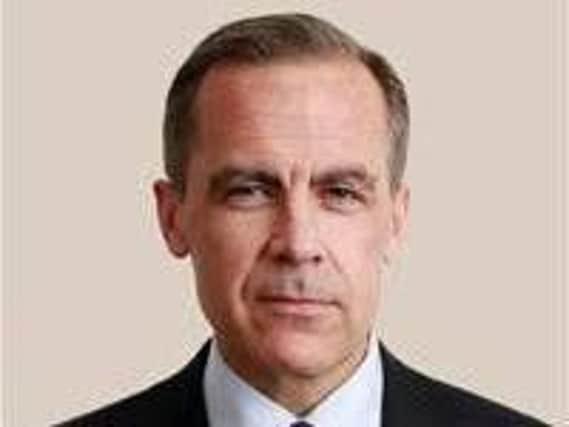Six of the best PR lessons for 2017


Lesson 1: Manage expectations early
Mark Carney and a number of his fellow Monetary Policy Committee members had been talking openly about interest rate rises for some time, laying the groundwork for the first rise in 10 years, from 0.25 to 0.5 per cent last month. All good communications seek to manage expectations and avoid surprise news that could scare markets.
Clear signals have been given for two more rises over the next three years raising the possibility of 1 per cent interest rates, which will make communicating this news a lot easier when it comes.
Lesson 2: When you get it wrong apologise well
Advertisement
Hide AdAdvertisement
Hide AdPepsi’s advertising team’s slip up back in April saw model Kendall Jenner calming a protest by handing a police officer a can of Pepsi. The ad misjudged the popular mood and was soon to jump on the bandwagon of contemporary protest movements.
“Clearly we missed the mark, and we apologise” they said, “We also apologise for putting Kendall Jenner in this position.”
The advert was pulled after social media outrage erupted, but the apology came swiftly and unreservedly.
Lesson 3: Get a third party to sense check your output and give brutal feedback
Advertisement
Hide AdAdvertisement
Hide AdOne person who certainly struggles with apologies is the trigger-happy tweeter Donald Trump. There’s a long list of controversial tweets from 2017 that could be mentioned but last month’s retweeting of anti-Muslim videos posted by a British far-right group even prompted condemnation from our own PM. We could all benefit from an objective third party reviewing our work, as long as they have been given the opportunity to provide brutally honest feedback and are respected enough that we listen to them.
Lesson 4: Proof read everything and get someone else to proof it
We can look over our work hundreds of times and be entirely blind to a typo or wrong word used. Regardless of how busy or rushed we are, always re-read any communications and get someone else to proof it too. A good lesson was last week’s front page of the Cambridge News which, despite the scrutiny of editors and sub-editors, went to press with the headline: 100PT SPLASH HEADING HERE.
Lesson 5: Don’t forget the power of the recorded image in a 24/7 global PR game
Advertisement
Hide AdAdvertisement
Hide AdNothing says don’t fly with us again quite like forcibly removing a paying customer with the video going viral and then trying to blame the customer as happened with United Airlines in May. When the company first responded they tried to fudge their way out of it blaming the passenger, then they only apologised to other customers, and then they came out in support of their staff. It wasn’t until later in the news cycle that a full apology to the
customer was given after the video went viral, but by then the shares had already fallen like a plane in an electrical storm.
Lesson 6: Strong soundbites will be undone by a weak messenger
The Tory mantra of “Strong and stable” may have made sense in a pre-election campaign PR brainstorm, but snappy sound bites mean nothing if the delivery is poor. When we do present a message we must make sure to actually communicate effectively, and part of that is down to connecting with an audience and presenting authenticity – if that’s not you, then someone else needs to step up as the messenger.
Advertisement
Hide AdAdvertisement
Hide AdAnd one final one that I thought was obvious: it’s not just in the cinema, at the theatre or in a church service that you need to turn off your mobile phone – as Lord Tim Bell showed when his phone rang twice during his Newsnight interview … and you’d think us PR people would know better!